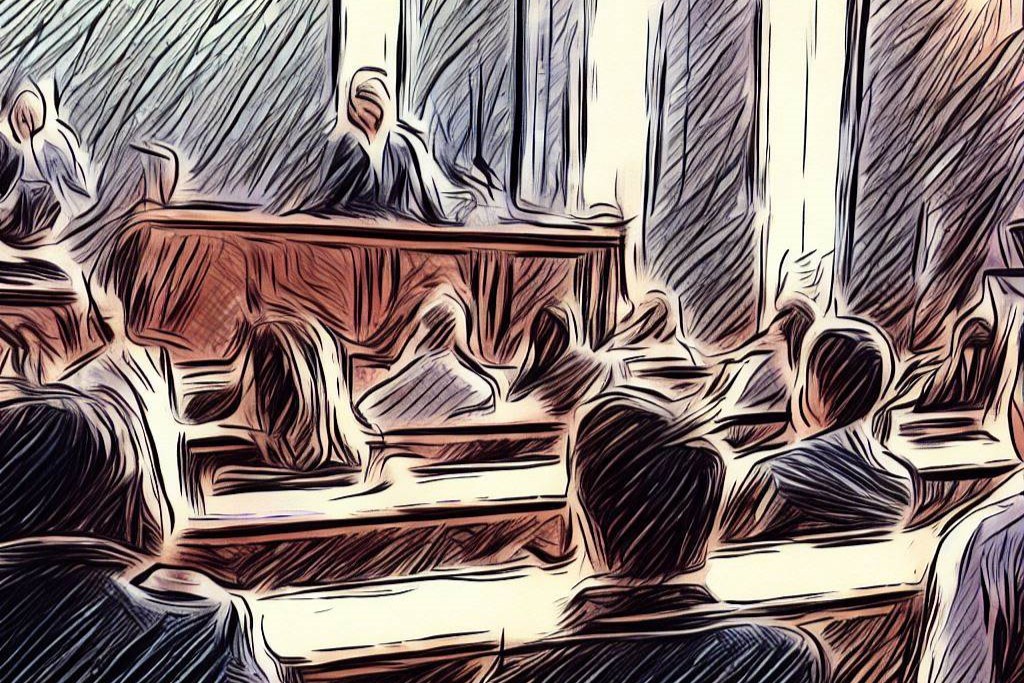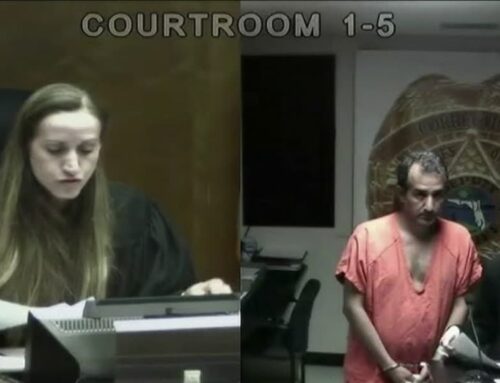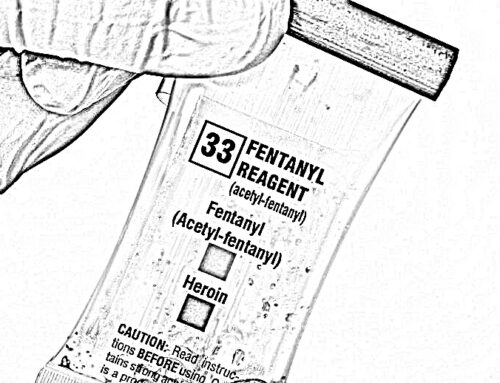The Burden of Proof in Criminal Cases: A Guide for Defendants in Florida
If you have been charged with a crime in Florida, one of the most important concepts you need to understand is the burden of proof. The burden of proof refers to the obligation of the prosecution to prove every element of the alleged crime beyond a reasonable doubt. This bedrock principle protects the accused from being wrongly convicted and helps ensure a fair criminal justice system.
In this comprehensive guide, I will explain what the burden of proof means in criminal cases, how it works, and why it matters so much to defendants like you.
What is the Legal Burden of Proof?
The legal burden of proof refers to the obligation of a party in a trial to prove or disprove a disputed fact. In criminal law, the burden of proof falls entirely on the prosecution. As the accused, you do not need to prove your innocence or provide any evidence in your defense.
The prosecution must prove the charges against you beyond a reasonable doubt. This is a very high legal standard that gives the benefit of the doubt to the defendant. If the prosecutor fails to meet this stringent burden, you must be found not guilty under the law.
Burden of Proof Definition
The formal burden of proof definition in criminal law is:
The duty of the prosecution to prove every element of the criminal charge beyond a reasonable doubt in order to obtain a guilty verdict.
This means that you start the trial with a clean slate and no burden to prove anything. The prosecutor bears the full responsibility to convince the jury of your guilt.
Beyond a Reasonable Doubt
Beyond a reasonable doubt is the highest burden of proof in the U.S. legal system. It applies to criminal cases due to the serious potential consequences for a defendant facing incarceration, fines, and lifelong stigma as a convicted criminal.
Beyond a reasonable doubt sets an extremely high bar for prosecutors. It is not enough for the prosecution to prove their case is probable, plausible, or highly likely. Instead, the evidence must eliminate any reasonable doubt about the defendant’s guilt that remains in the jury’s mind.
If a single juror retains reasonable doubt after hearing all the evidence, they must vote to acquit. As a criminal defendant, the beyond-a-reasonable doubt standard offers you the strongest legal protection against wrongful conviction.
Burden of Proof in Criminal Law
The burden of proof in criminal law protects citizens from arbitrary accusations and convictions by the government. Under English common law traditions, the accused is presumed innocent. This presumption of innocence reinforces that the prosecution must thoroughly prove its allegations beyond any reasonable doubt.
Placing the burden of proof entirely on the prosecution helps ensure a fair process. The government has vast investigatory resources through law enforcement and prosecutors’ offices. Individual defendants lack similar assets to build a case. The burden of proof offsets this imbalance of power by keeping the onus on the government.
Burden of Proof and Presumption of Innocence
The presumption of innocence works hand-in-hand with the burden of proof in criminal proceedings. Both principles safeguard the accused against unjust convictions.
The presumption of innocence means that you, as the defendant, are assumed to be innocent of the charged crime until proven guilty. The prosecution must start from a neutral position and bear the burden of proof to overcome your presumed innocence.
Without the presumption of innocence, defendants would need to affirmatively prove their own innocence. However, the burden is entirely on the prosecution to support their accusations, not on you to disprove them.
Reasonable Doubt Favors the Defendant
Since the burden rests with the prosecutor, any reasonable doubts about the evidence must be resolved in your favor as the defendant. The prosecution does not receive the benefit of the doubt – you do.
Even if the charges seem plausible, but doubts linger, the jury should acquit since the prosecutor did not meet their demanding burden of eliminating all reasonable doubt. Any ambiguities or uncertainties weigh in your favor under this high standard.
Burden Never Shifts to Defendant
Importantly, the burden never shifts to the defendant. You are not required to testify, present witnesses, or submit evidence. A criminal defendant has the right to simply rely on the presumption of innocence and put the prosecution to their difficult burden of proof.
You may certainly introduce evidence to rebut the charges and cast doubt on the prosecutor’s case. However, choosing not to present a defense does not impact the unchanged burden on the state. No matter what, the prosecution bears the full burden from start to finish.
Why the Burden of Proof Matters So Much
Placing the burden squarely on the prosecution serves vital interests of justice in our legal system. Beyond protecting the accused, the burden of proof advances essential values like:
Deterring Wrongful Arrests and Charges
Knowing they face a heavy burden at trial deters prosecutors from bringing weak cases without sufficient evidence. The burden of proof discourages unfounded speculation and conjecture. Police and prosecutors must gather concrete evidence before arresting and charging a suspect.
Upholding the Presumption of Innocence
The presumption of innocence could become meaningless without the burden of proof. Prosecutors would only need to make plausible allegations to secure easy convictions. Imposing an unwavering burden on the state upholds a defendant’s innocence until proven guilty.
Ensuring Reliable & Accurate Verdicts
By forcing prosecutors to eliminate all reasonable doubts, the burden of proof promotes greater certainty and accuracy in criminal verdicts. Only those defendants proven guilty beyond a reasonable doubt will be convicted, reducing the risk of punishing innocent people.
Protecting Individual Rights & Liberties
As citizens, we should not lose our freedom without overwhelming proof of criminal misconduct. The burden of proof enforces the government’s duty to make an airtight case before infringing on the accused’s liberty and reputation.
Establishing Trust in the Justice System
Public trust in the courts depends on faith that innocent people will not be hastily convicted and imprisoned by the government. The burden of proof promotes confidence that convictions result only from indisputable evidence.
By upholding these values, the burden of proof ensures not only fair trials but also a principled criminal justice system trusted by the citizens it serves and accountable to rigorous standards before depriving anyone of liberty.
Meeting the Burden: What Prosecutors Must Prove
To secure a guilty verdict, the prosecution must prove beyond a reasonable doubt every element of the criminal charge against you. The required elements vary based on the specific offense alleged.
Common items the prosecutor must prove include:
The Defendant’s Identity
The prosecution must first establish you are the person who committed the crime. Evidence like fingerprints, DNA, eyewitness identifications, or confession can identify the defendant. Without proof of identity, you cannot be convicted, regardless of other evidence.
Criminal Act Was Committed
Next, the prosecution must prove the alleged criminal act actually occurred. This requires providing factual evidence of the crime, such as documents, physical evidence, digital records, or testimony.
Required Mental State
Most crimes require proving the defendant’s mental state or intent. Examples include purposely, knowingly, recklessly, or negligently. The prosecutor must show you committed the act with the requisite guilty mindset defined in the criminal statute.
Venue & Jurisdiction
The state must also establish proper venue and jurisdiction to prosecute the charges. This means proving the alleged crime occurred within the geographic area of the court’s authority.
Negating Affirmative Defenses
If you raise any legal affirmative defenses such as self-defense, insanity, duress, etc., the burden shifts to the prosecutor to disprove these defenses beyond a reasonable doubt.
Unless the prosecution conclusively establishes each of these required elements, the jury must find the defendant not guilty due to the unchanged burden of proof.
Prosecution Strategies to Meet the Burden
To achieve a guilty verdict, prosecutors rely on various strategies to methodically prove their case beyond a reasonable doubt:
Physical and Forensic Evidence
Physical evidence like weapons, blood, DNA, and fingerprints scientifically ties defendants to crimes. Skilled collection and testing by forensics experts can sometimes produce ironclad proof for juries.
Documents and Records
Prosecutors enter documents like medical reports, phone records, surveillance footage, and financial statements to conclusively establish facts and the defendant’s guilt.
Investigator Testimony
Police investigators describe their findings, reconstructing the crime scene, interrogating witnesses, and making arrests. Their firsthand observations provide jurors with crucial context.
Confessions
If obtained legally, the defendant’s own confession admitting guilt is perhaps the most compelling evidence for prosecutors to meet their burden.
Eyewitness Testimony
Jurors often find eyewitness accounts of the crime persuasive despite reliability challenges. Effective questioning elicits details solidifying the defendant’s role.
Expert Testimonial
Expert opinions from professionals like medical examiners, ballistics specialists, and forensic psychologists explain technical evidence supporting guilt.
Closing Argument
Finally, the prosecutor’s closing argument summarizes how the totality of evidence eliminates all reasonable doubts about the defendant’s guilt as charged.
Through leveraging these evidentiary sources, prosecutors methodically build a case, leaving no gaps or doubts. When successful, they satisfy the heavy burden of proof.
As a Defendant, the Burden of Proof is On Your Side
Facing criminal prosecution can be frightening and overwhelming. But as your defense lawyer, I am here to help. Perhaps the most important thing to understand is that the burden of proof sets a high bar for conviction and provides important protections for you.
Some key points to remember about the burden of proof as a defendant:
- You are presumed innocent and do not have to prove anything at trial.
- The prosecution bears the full burden of proving guilt beyond any reasonable doubt.
- All uncertainties and doubts must be resolved in your favor.
- The burden never shifts – it remains entirely on the government throughout the trial.
- Without proof of every element, you cannot be found guilty.
- The prosecution’s burden holds them to a rigorous standard before they can take away your freedom.
Leaning on these pillars, we can help you stand strong as you exercise your rights. We will craft an aggressive, evidence-based defense to require the government to meet its difficult burden of proof. With persistence and preparation, we can overcome the prosecution’s allegations together.
Let Us Help Protect Your Rights
Take advantage of this fundamental safeguard by hiring a lawyer ready to put the government to their proof. Contact our office today for a free case review. We will carefully examine the prosecution’s evidence and identify ways to raise reasonable doubts about their allegations.
With our guidance, you can force the state to meet its high burden while guarding your constitutional rights every step of the way. Don’t leave your future to chance – let us help you fight for the just outcome you deserve.
CALL US NOW for a CONFIDENTIAL INITIAL CONSULTATION at (305) 538-4545, or take a moment to fill out our confidential and secure intake form.* The additional details you provide will greatly assist us in responding to your inquiry.
*Due to the large number of people who contact our law office requesting our assistance, it is strongly suggested that you take the time to provide us with specific details regarding your case by filling out our confidential and secure intake form. The additional details you provide will greatly assist us in responding to your inquiry promptly and appropriately.
THERE ARE THOUSANDS OF LAW FIRMS AND ATTORNEYS IN SOUTH FLORIDA. ALWAYS INVESTIGATE A LAWYER’S QUALIFICATIONS AND EXPERIENCE BEFORE MAKING A DECISION ON HIRING A CRIMINAL DEFENSE ATTORNEY ATTORNEY FOR YOUR MIAMI-DADE COUNTY CASE








